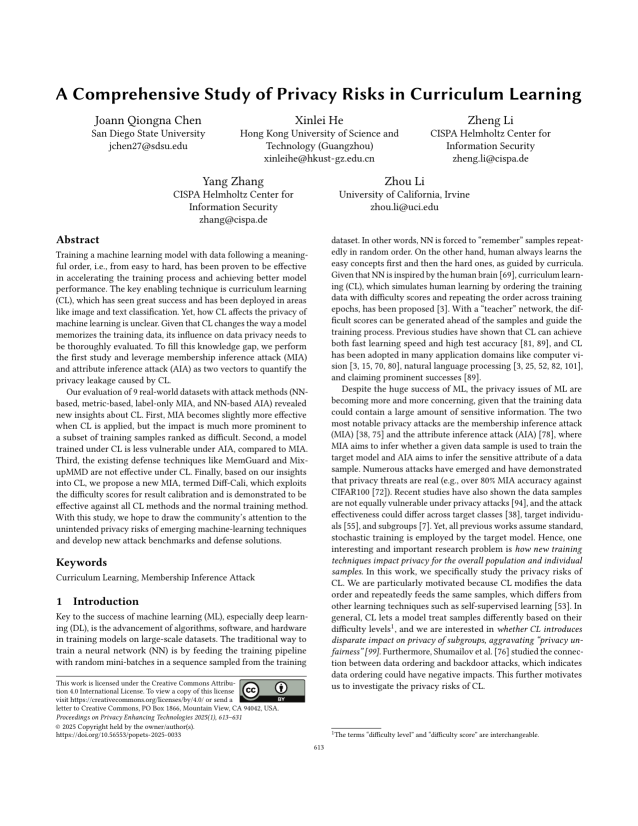A Comprehensive Study of Privacy Risks in Curriculum Learning
Authors: Joann Qiongna Chen (San Diego State University), Xinlei He (Hong Kong University of Science and Technology (Guangzhou)), Zheng Li (CISPA Helmholtz Center for Information Security), Yang Zhang (CISPA Helmholtz Center for Information Security), Zhou Li (University of California, Irvine)
Volume: 2025
Issue: 1
Pages: 613–631
DOI: https://doi.org/10.56553/popets-2025-0033
Abstract: Training a machine learning model with data following a meaningful order, i.e., from easy to hard, has been proven to be effective in accelerating the training process and achieving better model performance. The key enabling technique is curriculum learning (CL), which has seen great success and has been deployed in areas like image and text classification. Yet, how CL affects the privacy of machine learning is unclear. Given that CL changes the way a model memorizes the training data, its influence on data privacy needs to be thoroughly evaluated. To fill this knowledge gap, we perform the first study and leverage membership inference attack (MIA) and attribute inference attack (AIA) as two vectors to quantify the privacy leakage caused by CL. Our evaluation of 9 real-world datasets with attack methods (NN-based, metric-based, label-only MIA, and NN-based AIA) revealed new insights about CL. First, MIA becomes slightly more effective when CL is applied, but the impact is much more prominent to a subset of training samples ranked as difficult. Second, a model trained under CL is less vulnerable under AIA, compared to MIA. Third, the existing defense techniques like MemGuard and MixupMMD are not effective under CL. Finally, based on our insights into CL, we propose a new MIA, termed Diff-Cali, which exploits the difficulty scores for result calibration and is demonstrated to be effective against all CL methods and the normal training method. With this study, we hope to draw the community's attention to the unintended privacy risks of emerging machine-learning techniques and develop new attack benchmarks and defense solutions.
Keywords: Curriculum Learning, Membership Inference Attack
Copyright in PoPETs articles are held by their authors. This article is published under a Creative Commons Attribution 4.0 license.

